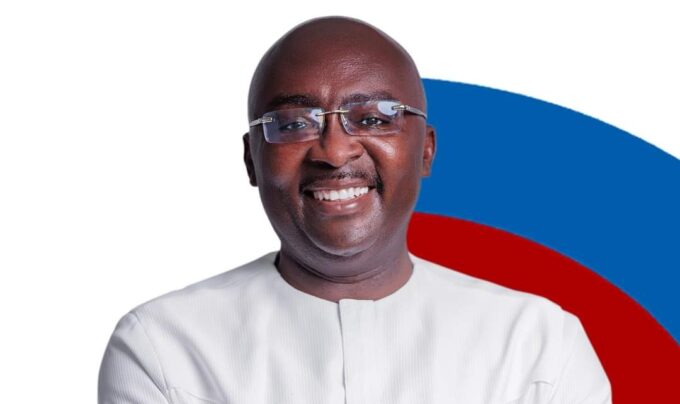In a surprising twist that mirrors a painful recent past, over 60 sitting Members of Parliament from the New Patriotic Party (NPP) have once again declared their support for former Vice President Dr. Mahamudu Bawumia to lead the party into the 2028 general elections. This endorsement comes despite the disastrous aftermath of a similar alignment in 2024, where the NPP’s parliamentary strength crumbled from 137 seats to a paltry 88 following a historically underwhelming electoral performance.
This mass endorsement of Bawumia by MPs, though projected as a show of strength, bears an uncanny resemblance to the same political choreography that failed the NPP just a year ago. It raises deep questions within the party and among observers: Is this merely an early knockout for other contenders, as some in the pro-Bawumia media boldly claim? Or are we witnessing the slow political expiration of a man whose place in the party, and perhaps Ghanaian politics, has never quite been secure?
Also Read: Spurs fined by FA for fans’ homophobic chanting
The 2024 elections were a wake-up call for the NPP. At the heart of the party’s defeat was a disconnect between leadership and grassroots, between messaging and public sentiment, and between power brokers in Accra and the average voter across the country. Dr. Bawumia, despite a high-profile campaign and open backing from the then Akufo-Addo NPP government and the majority of NPP MPs, was rejected by a nation reeling from economic hardship and broken political promises. The endorsement of MPs did little to sway public opinion then, and there’s little to suggest that the situation has fundamentally changed.
In fact, if anything, the MPs’ current endorsement may expose them once again to the political guillotine. Many of the NPP’s incumbents lost their seats in 2024 precisely because they failed to read the mood of their constituents. Rather than prioritising their base, they appeared fixated on internal party loyalty and top-down political alignments. That miscalculation cost them dearly. To repeat the same act in 2025, less than a year after such a fall, borders on political amnesia—or worse, arrogance.
Endorsement or funeral chants
For Bawumia himself, this re-endorsement may not be the victory it appears to be. It could cement the perception that he remains a product of elite political engineering rather than a figure with deep organic support. His technocratic profile and digital economy rhetoric may have earned him praise in policy circles, but they failed to resonate where it mattered most—in the polling booth. The 2024 campaign proved that slogans like “It is possible” could not erase the lived realities of economic pain and rising public distrust in government.
Furthermore, the idea that he is not a true “insider” within the traditional NPP establishment continues to linger. While his admirers present him as a moderniser and bridge-builder, his critics—both within and outside the party—see him as a political anomaly: parachuted from technocracy into politics, but never fully accepted by either. If anything, the repeated failure of his endorsement coalition in parliamentary races only fuels the narrative that his leadership is costly, both electorally and strategically.
So, what should the NPP take away from this premature declaration of allegiance?
First, that support from MPs is no longer the political currency it once was. In an era of social media, voter consciousness, and economic activism, political legitimacy must be built from the bottom up. Second, the NPP must confront its internal fractures rather than paper over them with surface unity behind a single candidate. And third, the party needs to ask itself hard questions: What do voters want in 2028? Who can best reconnect the party to its core message of development in freedom? Who can lead not just the party faithful, but a disillusioned Ghanaian public?
If the NPP sees the 2028 elections as merely another contest of personalities and internal loyalty, it risks repeating 2024’s collapse—perhaps on an even grander scale. The early MP support for Bawumia may look like a front-runner’s momentum, but if recent history is any guide, it could just as easily be the first note in a requiem for a campaign that never found its soul.
It is not too late for the NPP to recalibrate. But first, it must listen—not to itself, not to its MPs, and not to the echoes of lost power—but to the people.


